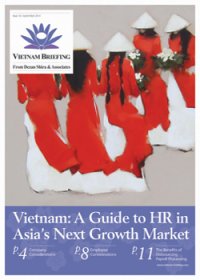Malaysia to Implement Lowest ASEAN Goods and Services Tax (GST)
Beginning in April 2015, Malaysia will introduce a goods and services tax (GST) of six percent – the lowest rate in the ASEAN region. The new GST will replace the country’s current sales and services taxes. 2015 will also see the release of Malaysia’s new budget.
The new tax regime is intended to increase the competiveness of Malaysia’s exports, which will be zero rated. Additionally, a number of special schemes will be implemented in order to support the cash flow of exporters – such as allowing companies to defer accounting for GST on temporarily imported goods for re-export.
Due to the imposition of the GST, a number of important changes to the country’s tax system will take place. These include:
- A one to three percent decline in income tax rates
- Households with a monthly income of up to MYR4,000 will be exempt from income tax
- The income tax threshold for the top rate will be raised from MYR100,000 to MYR400,000
- Income above MYR400,000 is subject to a lowered tax rate of between 25 and 26 percent
- Corporate income tax rates will be reduced to 25 percent from 26 percent
- The tax rate on SMEs will be reduced one percent to a rate of 19 percent
RELATED: Declaration Now Required on Transfer Pricing Documentation in Malaysia
The GST has been attacked by government opposition members, who claim that the tax is regressive and would cause more money to flow out of the country. The opposition Pakatan Rakyat party has proposed the use of a capital gains tax and a tax on inheritances as an alternative to GST. However, Malaysia’s Prime Minister, Datuk Seri Razak, has argued that the GST is a better tool for increasing government revenues and will allow the country to become more competitive against rivals such as Singapore.
The implementation of GST has been an increasingly common sight throughout ASEAN. Besides Malaysia, only Brunei and Myanmar have not implemented the tax regime.
Asia Briefing Ltd. is a subsidiary of Dezan Shira & Associates. Dezan Shira is a specialist foreign direct investment practice, providing corporate establishment, business advisory, tax advisory and compliance, accounting, payroll, due diligence and financial review services to multinationals investing in China, Hong Kong, India, Vietnam, Singapore and the rest of ASEAN. For further information, please email asean@dezshira.com or visit www.dezshira.com.
Stay up to date with the latest business and investment trends in Asia by subscribing to our complimentary update service featuring news, commentary and regulatory insight.
Related Reading
 Tax, Accounting, and Audit in Vietnam 2014-2015
Tax, Accounting, and Audit in Vietnam 2014-2015
The first edition of Tax, Accounting, and Audit in Vietnam, published in 2014, offers a comprehensive overview of the major taxes foreign investors are likely to encounter when establishing or operating a business in Vietnam, as well as other tax-relevant obligations. This concise, detailed, yet pragmatic guide is ideal for CFOs, compliance officers and heads of accounting who need to be able to navigate the complex tax and accounting landscape in Vietnam in order to effectively manage and strategically plan their Vietnam operations.
 An Introduction to Tax Treaties Throughout Asia
An Introduction to Tax Treaties Throughout Asia
In this issue of Asia Briefing Magazine, we take a look at the various types of trade and tax treaties that exist between Asian nations. These include bilateral investment treaties, double tax treaties and free trade agreements – all of which directly affect businesses operating in Asia.
 Vietnam: A Guide to HR in Asia’s Next Growth Market
Vietnam: A Guide to HR in Asia’s Next Growth Market
In this issue of Vietnam Briefing, we attempt to clarify human resources (HR) and payroll processes in Vietnam. We first take you through the current trends affecting the HR landscape and then we delve into the process of hiring and paying your employees. We next look at what specific obligations an employer has to their employees. Additionally, we guide you through the often complex system of visas, work permits, and temporary residence cards. Finally, we highlight the benefits of outsourcing your payroll to a “pan-Asia” vendor.
- Previous Article Outlook on ASEAN Investment 2015
- Next Article Singapore Releases New e-Tax Guide for Business Trusts













